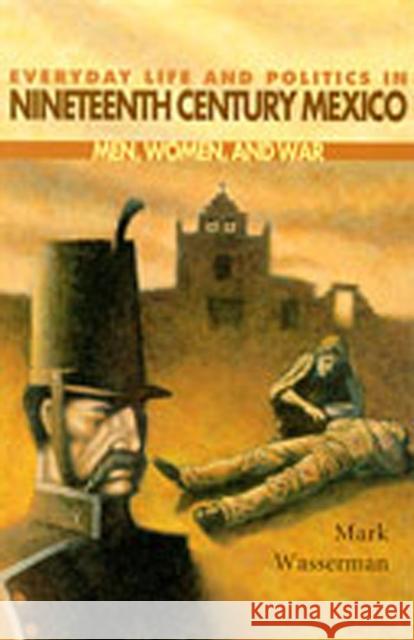Everyday Life and Politics in Nineteenth Century Mexico: Men, Women, and War » książka
Everyday Life and Politics in Nineteenth Century Mexico: Men, Women, and War
ISBN-13: 9780826321718 / Angielski / Miękka / 2000 / 262 str.
In this new and masterful synthesis, Wasserman shows the link between ordinary men and women-preoccupied with the demands of feeding, clothing, and providing shelter-and the elites' desire for a stable political order and an expanding economy.
The three key figures of nineteenth-century Mexico-Antonio Lopez de Santa Ana, Benito Juarez, and Porfirio Diaz-are engagingly reinterpreted. But the emphasis in this book is on the struggle of the common people to retain control over their everyday lives. Concerns central to village life were the appointment of police officials, imposition of taxes on Indians, the trustworthiness of local priests, and changes inland ownership. Communities often followed their leaders into one political camp or another-and even into war-out of loyalty.
Excesses in partisan politics and regional antagonisms gave rise to nearly eighty years of war, resulting in the nation's economic stagnation between 1821 and 1880 and the mass migration of women from the countryside to the city. The industrialization of urban employment forever altered gender relations. During wartime, women acted as the supply, transportation, and medical corps of the Mexican armies. Moreover, with greater frequency than has been known, women fought as soldiers in the nineteenth century. This account of Mexico from Independence to the Revolution combines lively explanations of social history, political and economic change, and gender relations. Wasserman offers a well-written, thoughtful, and original history of Mexico's nineteenth century that will appeal to students and specialists alike.
"At long last, a clear-headed, non-romanticized, and non-adversarial analysis of everyday life and politics across the vast sweep of a century of change and rebirth. This is a first-rate book, expert and highly accessible."--Professor Timothy E. Anna, University of Manitoba "











